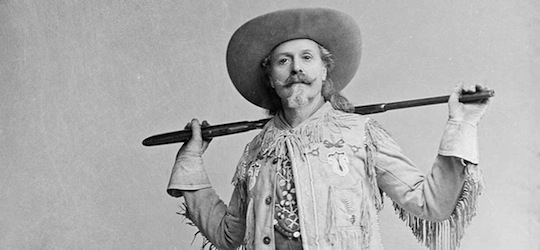Railroads played a vital role in the development of the American West. They not only brought supplies, settlers, and capital westward, but modernity as well. As a key participant in the creation and promotion of the myth of the Old West, William F. Cody recognized the important qualities railroads brought westward. His previous work as a hunter and supplier of buffalo meat for the Kansas Pacific Railroad and his Wild West show’s extensive use of rail lines brought him into close contact with railroad executives and other men of wealth and influence. When he decided to found the town of Cody, Wyoming, Bill Cody believed the connections he had forged as “Buffalo Bill” would serve him well as he navigated the bureaucratic and political structures involved in town development.
His experience as a showman proved beneficial to his efforts to promote the town, but the correspondence between Bill Cody and the Chicago, Burlington, and Quincy Railroad reveals a glaring disparity between each party’s interests and power. Billy Cody did not fully grasp the implications of the shift from the Old West to the New West and overestimated the extent to which personal relationships and social networks would aid him in his town-building venture. The result was a Cody, Wyoming that was shaped not after William F. Cody’s vision of the Old West or personal legacy, but according to the long-term business goals of the Chicago, Burlington, and Quincy Railroad.
—–
“William F. Cody and the Railroads: The Role of the Old West and the New West in the Development of Cody, Wyoming.” Shifting Boundaries: Expansion, Invasion, and Violence in the West, Seventh Annual James A. Rawley Conference in the Humanities, University of Nebraska-Lincoln, March 31, 2012. Michelle Tiedje, University of Nebraska-Lincoln.
